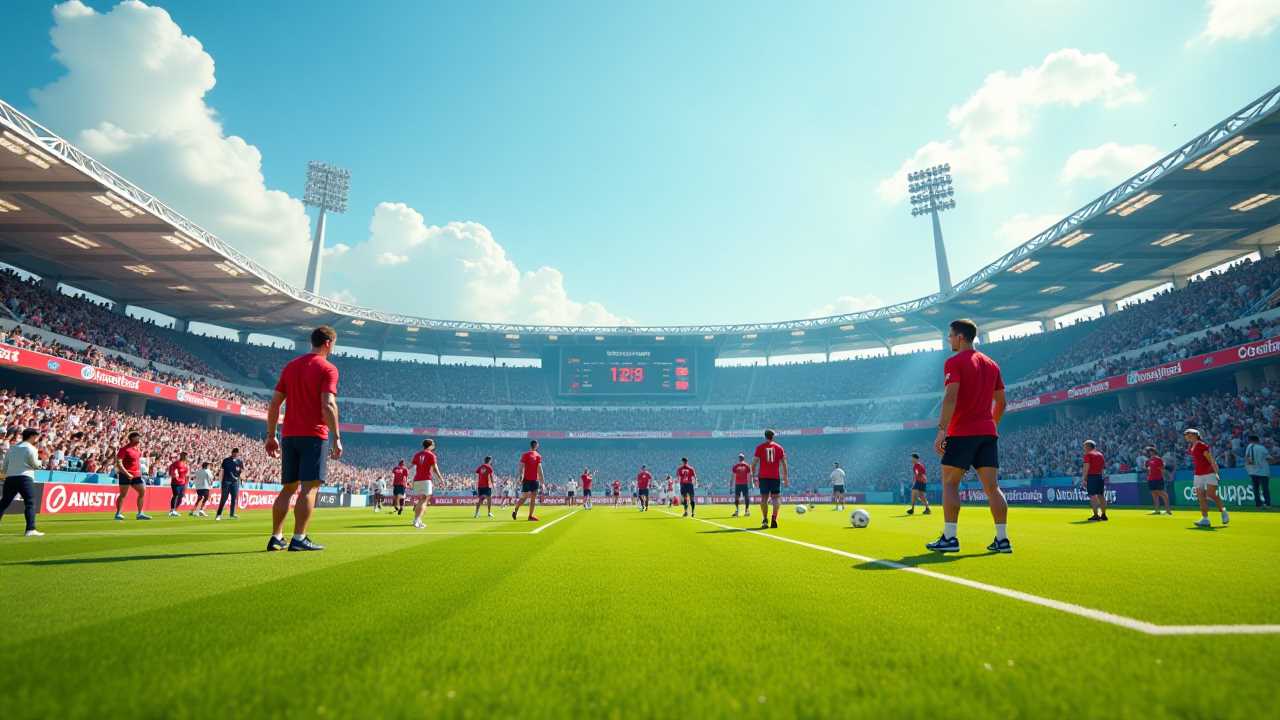Sports
What Should I Consider When Planning a Sports Event?
Planning a successful sports event starts with clear goals, such as promoting health or raising funds. Selecting an accessible venue that can handle the


When you’re planning a sports event, you should start by clearly defining your goals, whether it’s promoting health or raising funds. Choosing the right venue is essential; make sure it can accommodate your crowd and is accessible for everyone. Budgeting is another key element; include all potential expenses and set aside a contingency fund for surprises. Don’t overlook marketing strategies—target your audience and use social media to boost engagement. Finally, prioritize safety by evaluating risks and creating a safety plan. Cover these areas, and you’ll set a strong foundation for an effective sports event. There’s more to investigate on each of these points.
Define Your Event Goals
When planning a sports event, defining your goals is essential to your success. Start by identifying what you want to achieve, whether it’s promoting health, fostering teamwork, or raising funds for a cause. Clear goals help guide your decisions, from budget allocation to participant engagement.
Consider the demographics of your audience; knowing who’ll attend can shape your event’s atmosphere and activities. Establishing safety as a priority is vital. Set goals that reflect a commitment to participant well-being, like ensuring proper medical support and emergency protocols.
Choose the Right Venue
Choosing the right venue is essential for your sports event’s success. The venue sets the stage for everything, from the atmosphere to the safety of participants and spectators.
When selecting a location, keep these factors in mind:
- Capacity: Confirm it can comfortably accommodate your expected crowd.
- Accessibility: Look for a venue that’s easy to reach for everyone, including those with disabilities.
- Facilities: Check for restrooms, seating, and first-aid stations to confirm everyone’s comfort and safety.
- Safety Features: Evaluate emergency exits, lighting, and crowd control measures to protect your attendees.
Budgeting and Financial Planning
Budgeting and financial planning are vital elements that can make or break your sports event. Start by outlining all potential expenses, including venue fees, equipment, permits, and insurance.


Don’t forget to include safety measures, like medical staff and first aid kits, as they’re essential for protecting your participants and audience. It’s wise to set aside a contingency fund for unexpected costs.
Next, consider potential income sources, such as ticket sales, sponsorships, and concessions. Create a detailed budget that balances your expected income with your expenses, and track spending closely.
Regularly reviewing your budget can help you stay on course and adjust as necessary. By being proactive in your financial planning, you’ll guarantee a smooth and safe experience for everyone involved.
Marketing and Promotion Strategies
To attract participants and spectators to your sports event, effective marketing and promotion strategies are essential.
Start by identifying your target audience and tailoring your message to them. Utilize various channels to spread the word and create excitement.
Here are some strategies to contemplate:
- Utilize social media platforms to engage with potential attendees and share event updates.
- Develop partnerships with local businesses for cross-promotion and sponsorship opportunities.
- Create eye-catching flyers and posters to display in community centers, schools, and gyms.
- Offer early-bird registration discounts to encourage sign-ups and boost attendance.
Safety and Risk Management
While attracting participants and spectators is important, guaranteeing their safety during the event is equally essential.
Start by evaluating potential risks, such as weather conditions, venue hazards, and health emergencies. It’s wise to create a comprehensive safety plan that includes emergency procedures and evacuation routes.
Make certain your staff is trained in first aid and CPR, so they’re ready to respond if needed. Additionally, consider having medical personnel on-site, especially for larger events.
Clear communication is vital; use signs and announcements to keep everyone informed.
Finally, make sure that all participants are aware of safety rules and regulations.
Frequently Asked Questions
How Do I Select the Right Date for My Sports Event?
To select the right date for your sports event, consider local weather, holidays, and competing events. You’ll want to guarantee ideal attendance and safety, so choose a time that works best for your participants.
What Permits or Licenses Do I Need for Hosting an Event?
You’ll need to check local regulations for permits and licenses. Often, you’ll require a general event permit, liability insurance, and possibly specific permits for food, alcohol, or noise. Always prioritize safety and compliance for everyone involved.
How Can I Recruit Volunteers for the Event?
To gather a team of enthusiastic volunteers, tap into local communities like a fisherman casting a net. Share your vision clearly, ensuring safety’s your priority, and watch as zealous hands reach out to support your cause.


What Technology Should I Use for Event Registration?
For event registration, you should use secure online platforms that offer user-friendly interfaces. Look for tools with data protection features, mobile compatibility, and real-time updates to guarantee a seamless and safe registration experience for everyone.
How Do I Handle Unexpected Weather Conditions on Event Day?
You’ll want to monitor forecasts closely, have a backup plan ready, and communicate with participants about potential weather changes. Guarantee safety measures are in place, and don’t hesitate to postpone if conditions become dangerous.


Hi, I’m Kyle Rivera, a news journalist and blog editor with the Daily Evening News. A TCU alum with a flair for storytelling, I spend my days uncovering impactful stories and my evenings exploring the realms of yoga, cycling, and whimsically bad poetry.
Travel is my escape; I’ve trekked from Tokyo’s neon lights to Iceland’s tranquil vistas. But no journey is complete without Mogli, my Golden Retriever, who’s redefining his breed standards in the most charming ways.
I love connecting with fellow travelers, yogis, cyclists, and anyone who enjoys a laugh at my poetic attempts. If you’re into stories that inspire, travel escapades, or just want to see what Mogli and I are up to, I’d love to hear from you on Instagram or Facebook. Let’s share tales and tips from around the globe!

